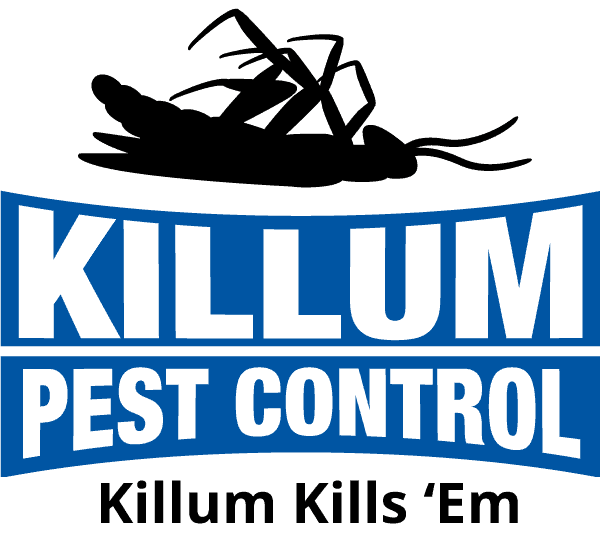Outdoor living spaces are essential for relaxation and enjoyment, especially during those warm Texas summers. However, they are often plagued by one of the most persistent and annoying pests – mosquitoes. Not only do they cause itchy, irritating bites, but mosquitoes also transmit diseases such as West Nile virus, Zika virus, and dengue fever, creating a potential health risk for you and your loved ones. Due to the favourable climate and an abundance of breeding sites, Texas is a prime location for these bloodsucking insects. To reclaim your outdoor space and protect your family from mosquito-borne diseases, understanding how to manage mosquitoes effectively in your Texas yard is key.
In this informative guide, brought to you by Killum Pest Control, we’ll dive into practical tips and solutions that can help reduce mosquito populations, making your outdoor living space enjoyable and healthier for everyone.
1. Identifying and Eliminating Mosquito Breeding Sites
The first step in managing mosquitoes in your Texas yard is identifying and eliminating potential breeding sites. Mosquitoes lay their eggs in stagnant water, and even a small amount of standing water can support hundreds or even thousands of mosquitoes. Some common mosquito breeding sites include:
– Bird baths
– Clogged gutters and downspouts
– Children’s toys and play equipment
– Old tires
– Rain barrels
– Plant saucers
– Puddles and low-lying areas of the yard
To eliminate mosquito breeding sites, follow these steps:
– Regularly empty and clean bird baths, plant saucers, and other containers that hold water.
– Properly store children’s toys and play equipment when not in use.
– Check and clean rain gutters and downspouts frequently to prevent clogs.
– Drill drainage holes in the bottom of tire swings and other similar items.
– Use a tight-fitting screen on rain barrels to prevent mosquitoes from laying eggs inside.
– Fill in low-lying areas of your yard to improve drainage and avoid standing water.
2. Environmentally-Friendly Mosquito Control Methods
Environmentally-friendly mosquito control methods focus on reducing mosquito populations without causing harm to non-target insect species, or the environment. Gardens and yards can benefit from these eco-conscious options, which include:
– Introducing natural mosquito predators: Encourage mosquito-eating animals, such as birds, bats, and dragonflies, by providing birdhouses, bathouses, and water features.
– Using native plants: Cultivate Texas native plants that naturally repel mosquitoes, such as lemon eucalyptus, citronella, marigolds, or lavender. These plants help keep mosquitoes away and also enhance your outdoor space.
– Employing larvicides: As a targeted approach, introduce biological larvicides such as Bacillus thuringiensis israelensis (BTI), a naturally occurring bacterium that specifically targets mosquito larvae, without harming other aquatic organisms.
3. Chemical Control Options for Mosquitoes
For more immediate relief or severe mosquito infestations, chemical control options can be an effective solution. These treatments generally involve residual insecticides or repellent products aimed at reducing mosquito populations and repelling adult mosquitoes. Some popular chemical control options include:
– Barrier treatments: These involve applying residual insecticides to mosquito resting sites, such as vegetation and the exterior walls of buildings, to kill mosquitoes when they come into contact with the treated surfaces.
– Mosquito fogging: Fogging with a pyrethroid insecticide can quickly knock down adult mosquitoes in an area, providing temporary relief from biting insects.
– Contact insecticides: These are short-lived insecticides that kill adult mosquitoes directly on contact, such as space sprays or aerosols.
– Repellent products: These can be applied to skin, clothing, or outdoor living spaces to discourage mosquitoes from biting.
When using chemical control methods, always remember to follow the product label instructions and consult your local pest control professional for advice and best practices.
4. The Benefits of Professional Mosquito Control Services
Hiring professional mosquito control services can provide numerous benefits to help protect your outdoor space:
– Expertise: Professional technicians are experienced and knowledgeable in mosquito biology, habits, and the most effective control methods, providing you with the latest and most effective solutions.
– Customized treatment plans: Professionals assess your property and create a tailored mosquito control plan specific to your needs and the local mosquito species.
– Integrated pest management: Pest control professionals employ an integrated pest management (IPM) approach, combining various control techniques to maximize effectiveness while minimizing environmental impact.
– Safety and compliance: Professionals are trained to apply treatments safely, conforming to federal, state, and local regulations, ensuring the well-being of people, pets, and the environment.
Conclusion:
By employing a combination of breeding site elimination, environmentally-friendly control methods, chemical control options, and professional mosquito control services, you can significantly reduce mosquito populations in your Texas yard, making it a safer and more enjoyable space for family and friends.
Together with the expert advice and support from Killum Pest Control, you can reclaim your outdoor space from mosquitoes and create a comfortable oasis free from the nuisance and health risks posed by these pesky insects. Contact Killum Pest Control today to schedule a consultation and take the first step toward a mosquito-free outdoor environment.




